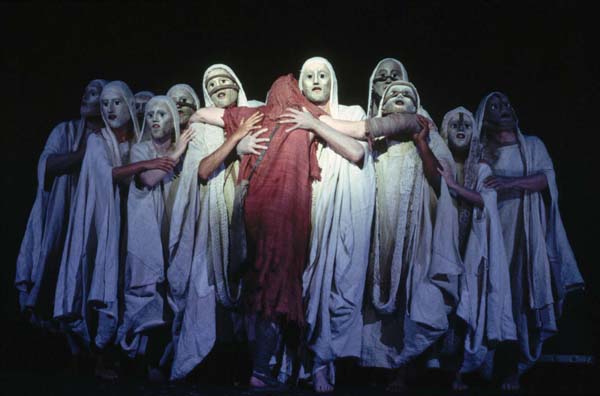Sophocles, << SOF uh `kleez` >> (about 496-406 B.C.), was the second of the three great Greek writers of tragedy. The others were Aeschylus—the earliest of the three—and Euripides.

Sophocles’s plays deal with a struggle of a strong individual against fate. In most of the plays, this individual chooses a course of action that the chorus and the lesser characters do not support. This course costs the individual suffering or even death, but it makes the individual nobler and somehow benefits humanity. Sophocles did not create ordinary characters who could be used to criticize conventional morality as Euripides did. The Greek philosopher Aristotle said that Sophocles portrayed people as they should be and that Euripides portrayed people as they are.
Artistically and in their dramatic construction, Sophocles’s plays are more finished than those of Aeschylus or Euripides, and Aristotle regarded his works as models. Sophocles added a third actor, fixed the size of the chorus at 15, and used scene painting. His plays show intrigue and suspense. Of the more than 120 plays Sophocles wrote, seven complete ones have survived. These are Ajax, Antigone, Trachinian Women, Oedipus Rex, Electra, Philoctetes, and Oedipus at Colonus. Part of a play called The Trackers was found in 1907.
Sophocles was born at Colonus, near Athens. His tragedies earned him many prizes in drama competitions. He served as an Athenian general and as a member of delegations to other states. He also played an active role in the religious life of Athens. Sophocles wrote one of his greatest plays, Oedipus at Colonus, when he was nearly 90.
